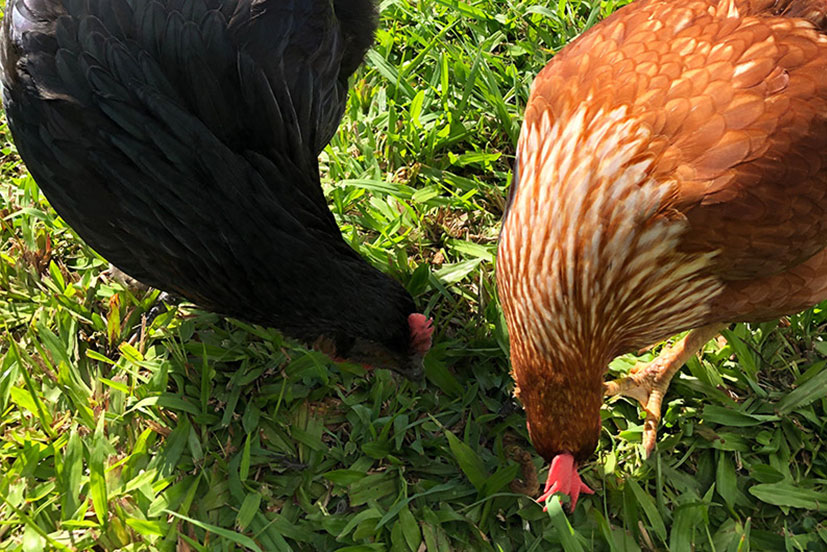
30 Jan What a Chick Wants
When Shelly the chicken crossed the road, she didn’t know she would be walking into the mouth of a lion. That is, a local canine who wasn’t impressed with the mysterious wanderer, trespassing on his backyard. Luckily the pooch’s owner was home and rescued Shelly, bringing her into the Tallebudegera Vet Clinic.
Shelly had a few puncture wounds that needed treatment along with pain relief and twice-daily doses of antibiotics to stave off any infection. Our team have been keeping a close eye on her, largely in the form of cuddles and tickles which Shelly loves! She also enjoys a fine cuisine consisting of her favourites- canned sweet corn and fresh mango. Unfortunately, there has been no luck tracking down Shelly’s owners, so, for now, she is our resident chicken as we continue to monitor her healing progress.
To prevent a situation like Shelly’s happening to your feathery friends, here are some eggcellent tips to chicken proof your yard + advice on raising a happy and healthy brood.
Enclosure
Chickens like foraging, dust bathing and socialising, so a minimum of one square meter per bird is required for them to run around and stretch their wings. Make sure your enclosure is encompassed in mesh to protect your chickens from outside predators. Adequate shelter is also needed in your enclosure to provide protection from rain, damp, cold winds and heat! Also, provide perches for your chickens to roost at night.
Food
Chickens love a quality scratch mix, along with vegetables, food scraps and access to grass where they can forage for insects. Make sure there is always cool clean water available too.
Egg Laying
For happy laying hens, set up straw or sawdust lined nesting boxes in a dark and quiet spot. Also, give them some friends to gossip with (think sitting in a chair at the hairdresser). Chickens love the company of their own kind!
Worm Prevention
To prevent your chickens from getting worms such as tapeworm, roundworm and hairworm, it is important to keep up to date with your worming treatment just like you would any other pet. Adding a good quality poultry worming treatment to their water every 3 months is an ideal way to address this.


